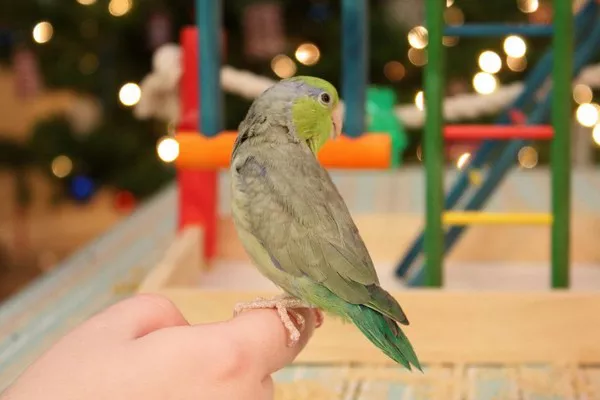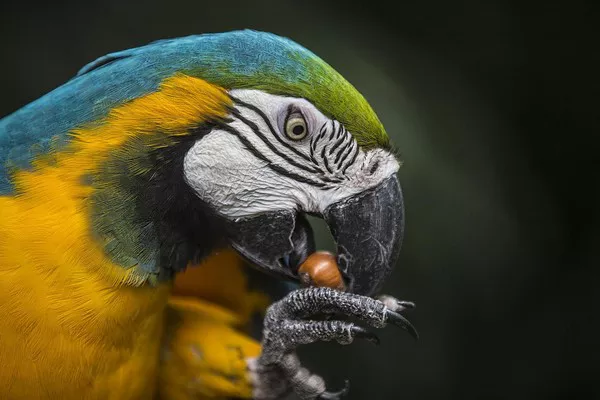Sun conures, known for their vibrant plumage and engaging personalities, are among the most coveted pet birds. Their high price tag often surprises potential buyers, leading to questions about what drives their cost. This article delves into the various factors contributing to the high cost of sun conures, exploring their breed characteristics, living habits, and the broader implications of their price on the pet market.
What Are Sun Conures?
Sun conures (Aratinga solstitialis) are small parrots native to the northeastern regions of South America. Their striking appearance and lively behavior make them a popular choice among avian enthusiasts. Native to the tropical forests of Brazil, Guyana, and Venezuela, sun conures are known for their brilliant plumage, which features a kaleidoscope of colors including yellow, orange, green, and blue.
Physical Characteristics
Sun conures are small parrots, measuring around 12 inches (30 cm) in length, with an average weight of 4 to 6 ounces (115 to 170 grams). Their most distinguishing feature is their vivid coloration. They exhibit a bright yellow body with orange-red underparts, green wing feathers, and blue flight feathers. This combination of colors is not only aesthetically pleasing but also a factor in their high cost.
The striking appearance of sun conures is a result of their complex feather pigmentation. Their feathers contain a mix of melanin, carotenoids, and structural colors. The combination of these pigments and structures produces their vibrant hues, which require a delicate balance to maintain in captivity.
Behavior and Personality
Sun conures are known for their playful and affectionate nature. They are highly social birds that thrive on interaction with their human companions. Their playful behavior includes climbing, chewing, and vocalizing. Sun conures are also known for their loud calls, which can be both charming and challenging for potential owners.
Their intelligence and need for social interaction mean they require significant mental stimulation and companionship. Without proper interaction, sun conures can become bored and potentially develop behavioral issues. Their engaging personalities make them excellent companions for those willing to invest time and energy into their care.
Factors Contributing to the High Cost of Sun Conures
Breeding Challenges
Breeding sun conures is a complex process that requires careful attention to detail. Successful breeding involves creating a suitable environment for the birds, ensuring their health, and managing their diet and social interactions. Sun conures are also known to be somewhat challenging to breed in captivity, which adds to their cost.
Breeding Difficulties: Sun conures have specific requirements for breeding, including the need for a spacious, well-maintained aviary and a balanced diet. Their breeding success is often influenced by the quality of their care and the breeding conditions provided.
Egg and Chick Care: After mating, female sun conures lay eggs, which require incubation. The care of the eggs and chicks is crucial, as improper conditions can lead to failed hatchings or unhealthy chicks. Raising sun conure chicks requires expertise and resources, further driving up their price.
High Maintenance and Care Requirements
Sun conures demand a high level of care to maintain their health and well-being. Their care requirements contribute significantly to their cost. Owners must provide a suitable diet, a clean and stimulating environment, and regular veterinary care.
Diet: Sun conures require a varied diet that includes fresh fruits, vegetables, nuts, and specially formulated pellets. Their diet needs to be balanced to prevent nutritional deficiencies, which can be costly to maintain.
Housing: Providing an appropriate living space for sun conures is essential. They need a spacious cage or aviary that allows for ample movement and exercise. The enclosure should be equipped with toys and perches to keep them engaged.
Veterinary Care: Regular check-ups with an avian vet are crucial for sun conures. They are prone to specific health issues, such as feather plucking and respiratory infections, which require prompt medical attention. The cost of veterinary care adds to the overall expense of owning a sun conure.
Market Demand and Rarity
The high price of sun conures can also be attributed to their market demand and relative rarity. Their vibrant appearance and engaging personalities make them highly sought after in the pet market.
Popularity: Sun conures are popular among bird enthusiasts due to their beauty and social nature. This popularity drives up their price as breeders and sellers cater to a high demand.
Rarity: While sun conures are not endangered, they are relatively rare in captivity compared to other parrot species. Their limited availability can increase their price, as potential buyers may be willing to pay a premium for these unique birds.
See Also: Why Does My Sun Conure Keep Screaming?
Import and Export Regulations
Sun conures, being native to South America, are subject to international import and export regulations. These regulations are in place to protect wildlife and ensure the ethical treatment of animals.
Regulations: Importing sun conures requires compliance with various regulations and permits, which can be costly and time-consuming. These regulations aim to prevent the illegal wildlife trade and ensure that birds are sourced ethically.
Costs: The costs associated with legal importation, including transportation and paperwork, are often passed on to buyers. These additional expenses contribute to the high price of sun conures.
The Implications of High Costs on Pet Ownership
Ownership Responsibility
The high cost of sun conures often reflects the level of responsibility required for their care. Prospective owners should be prepared for the financial and time commitments associated with owning these birds.
Commitment: Owning a sun conure involves a long-term commitment, as they can live up to 30 years in captivity. Potential owners must be willing to provide ongoing care, including a proper diet, regular vet visits, and daily interaction.
Financial Planning: The cost of purchasing a sun conure is just the beginning. Ongoing expenses, such as food, toys, and veterinary care, should be considered when planning for pet ownership.
Ethical Considerations
The high price of sun conures also raises ethical considerations regarding their breeding and sale. Ensuring that sun conures are bred and sold ethically is crucial for their well-being.
Breeding Practices: Responsible breeders prioritize the health and welfare of their birds. They should provide proper living conditions, avoid inbreeding, and ensure that their birds are raised in a healthy environment.
Consumer Awareness: Prospective buyers should research breeders and sellers to ensure that they are purchasing sun conures from reputable sources. Ethical considerations should be a factor in the decision-making process.
Conservation Efforts
Although sun conures are not currently listed as endangered, conservation efforts play a role in their price and availability. Protecting their natural habitats and ensuring ethical breeding practices are essential for their continued well-being.
Habitat Protection: Conservation efforts aimed at preserving the natural habitats of sun conures help maintain their populations in the wild. These efforts contribute to their overall conservation status and can influence their availability in the pet market.
Ethical Breeding: Support for ethical breeding practices helps ensure that sun conures are bred responsibly and that their well-being is prioritized. This can impact their price and availability, as well as their overall health.
Conclusion
Sun conures are captivating and vibrant parrots that command a high price due to a combination of factors including breeding challenges, high maintenance requirements, market demand, and import regulations. Their stunning appearance and engaging personalities make them a prized choice for bird enthusiasts, but they also come with significant responsibilities and costs.
Understanding the factors that contribute to the high cost of sun conures can help potential owners make informed decisions about their care and ownership. By considering the ethical implications and responsibilities associated with owning these beautiful birds, individuals can ensure that they provide the best possible environment for their sun conures and contribute to their well-being.
As the pet market continues to evolve, the price of sun conures may fluctuate, but their unique characteristics and the dedication required to care for them will always remain significant. For those who are prepared to invest the time, effort, and resources, sun conures offer a rewarding and enriching companionship that is well worth the cost.
Related Topics:


























